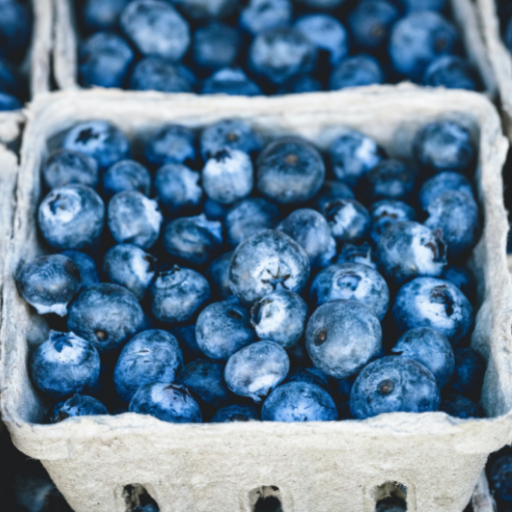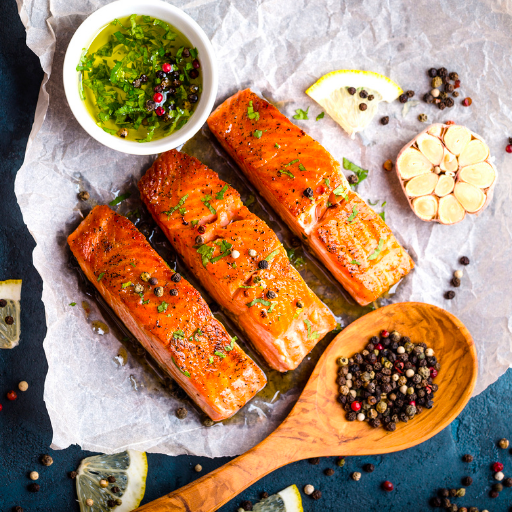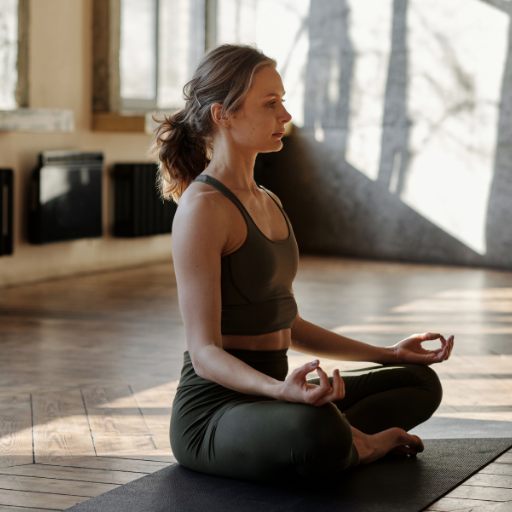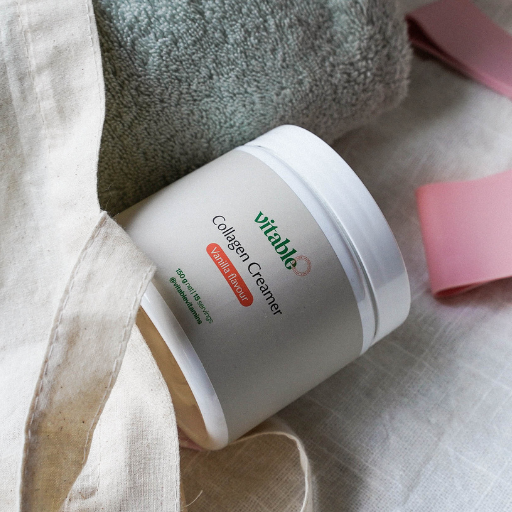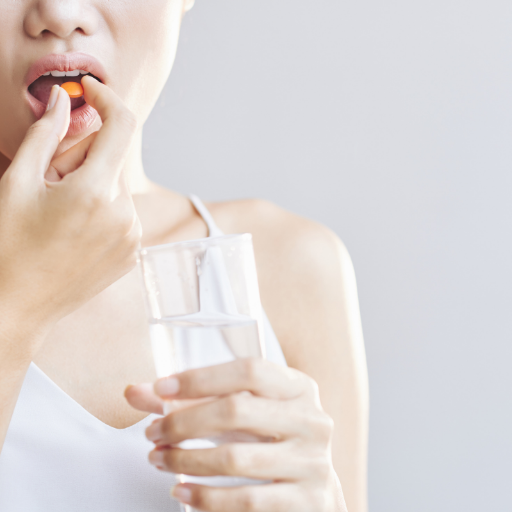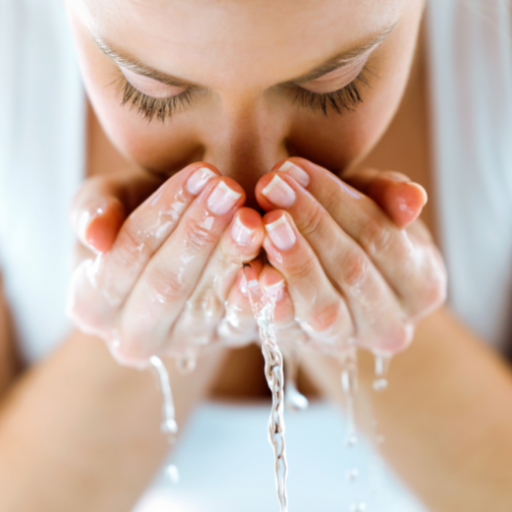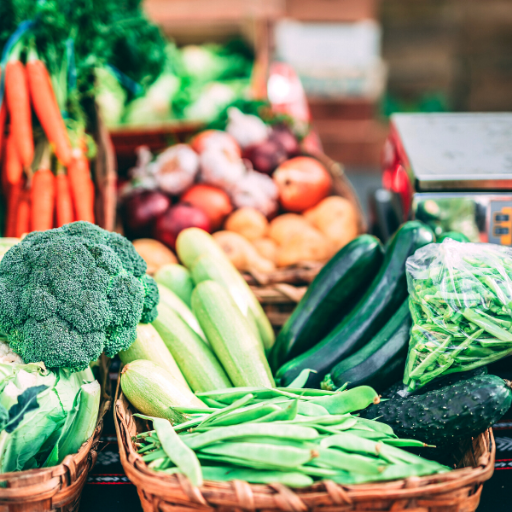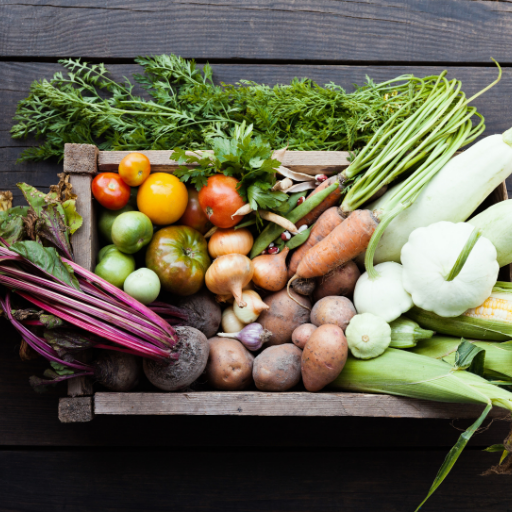Wellness Blog
The content on this blog is for general informational purposes only and is not a substitute for professional medical advice, diagnosis, or treatment. Always consult your healthcare provider before making changes to your health routine or taking new supplements.
How magnesium supplements can benefit your body & mind
Magnesium has several benefits which include supporting brain function and nervous system health. However, according to healthdirect, around 1 in 3 people in Australia are not getting the adequate intake of magnesium daily (1).This mineral is important as it directly impacts the nervous system. The nervous system is made up of the brain, spinal cord, and nerves. It is the system that controls all the functions you need to go about your day. This includes intelligence and memory, movement, and the senses (2).There are several factors that can deplete this mineral in your body, including alcohol use, chronic diarrhea, excessive sweating, and certain medications (12). Stress can also lead to less magnesium in the body (13).Healthy adult men should generally consume 400 to 420 mg of magnesium per day, while women should consume 310 to 320 mg daily. Pregnant women should consume a higher dose than women who are not pregnant.Magnesium supplement benefitsMaintains and supports nervous system healthMagnesium is necessary for the smooth running of several central nervous system processes (13). It is important for the regulation of good nerve transmission, and conduction of the nerves to the muscles.Maintains and supports cognitive and mental functionMagnesium is also important for proper cognitive and mental function. Studies have suggested that magnesium plays a role in human cognitive performance and also helps learning (15).Magnesium also helps block compounds that may cause neuronal degeneration and cell death, while improving muscle and nerve function ensuring a healthier mind (10).Prevents dietary magnesium deficiencyMagnesium deficiency results in neurological symptoms or conditions (5). It is also linked to inflammation, which may result in chronic health conditions (7).Magnesium-rich foodGenerally, foods that are high in fibre can provide reasonable amounts of magnesium.You can get a good amount of magnesium in green vegetables like spinach and peas. If you prefer things you can snack on, try cashews, peanuts, and almonds. Whole wheat bread and brown rice are good options as well. When trying to boost your magnesium levels, be sure to prioritise eating more magnesium-rich foods.In the case your diet is not enough, you can opt for magnesium supplements.While there are many different kinds of magnesium capsules available as supplements, the best types are the ones with highest bioavailability, or are most easily absorbed by the body. Among these is, magnesium citrate, which is more bioavailable compared to other types of magnesium, like magnesium oxide and magnesium chelate (14).Magnesium supplement benefits include giving your nervous system a boost. Taking the right steps to care for your brain and nervous system can allow you to function better on a daily basis.What happens when you have an effective exercise and diet plan in practice? That's half the battle won. Taking your capabilities to the next level can be achieved with personalised vitamins or vitamin packs. With Vitable, you can curate your supplementation by crafting a pack that's geared just for you - that's the benefit of having a vitamin subscription in Australia. What are you waiting for? Craft your unique vitamin plan today and have it delivered to your doorstep! Learn more about other areas that magnesium can help you with, plus other supplements that can benefit in different ways:Magnesium | Iron | Ashwagandha | Acetyl L carnitine | B complex | Vitamin C | Vitamin B12*Always read the label. Follow the directions for use. If symptoms persist, talk to your health professional. Vitamin and/or mineral supplements should not replace a balanced diet.References:1. HealthDirect. “Foods high in magnesium.” HealthDirect. Last Reviewed March 2021 on https://www.healthdirect.gov.au. Accessed August 3, 20212. HealthDirect. "Nervous System." HealthDirect. Last reviewed July 2019 on https://www.healthdirect.gov.au/nervous-system . Accessed August 3, 20213. Vitable. "Magnesium". Vitable. (n.d.) Accessed August 3, 2021 from https://www.get.vitable.com.au/products/magnesium24. HealthDirect. "Magnesium and your health". Healthdirect. Last reviewed March 2021 on https://www.healthdirect.gov.au/magnesium . Accessed August 2, 20215. Grober, U., Schmidt, J., Kisters, K. 2015. “Magnesium in Prevention and Therapy.” Nutrients 7, 9 (Sep): 8199-8226. https://www.mdpi.com/2072-6643/7/9/5388 . Accessed August 2, 20216. Kirkland, A., Sarlo, G., Holton, K., "The Role of Magnesium in Neurological Disorders". National Library of Medicine: National Center for Biotechnology Information. Published June 2018 on https://www.ncbi.nlm.nih.gov/pmc/articles/PMC6024559/ . Accessed August 3, 20217. Harrar, S., "Why Magnesium is Good for Brain Health". Brain&Life.org. Published Feb/March 2020 on https://www.brainandlife.org/articles/why-magnesium-is-good-for-brain-health/ . Accessed August 3, 20218. Sartori, SB., Whittle, N., Hetzenauer, A., Singewald, N. 2012. “Magnesium deficiency induces anxiety and HPA axis dysregulation: modulation by therapeutic drug treatment.” Neuropharmacology. 62, 1 (Jan): 304-12. https://doi.org/10.1016/j.neuropharm.2011.07.0279. Cuciureanu, M., Vink, R., "Magnesium in the Central Nervous System". University of Adelaide Press. Published 2011 on https://www.ncbi.nlm.nih.gov/books/NBK507250/ . Accessed August 3, 202110. Institute of Medicine (US) Committee on Nutrition, Trauma, and the Brain. "Nutrition and Traumatic Brain Injury: Improving Acute and Subacute Health Outcomes in Military Personnel". National Academis Press. Published 2011 on https://www.ncbi.nlm.nih.gov/books/NBK209305/ . Accessed August 3, 202111. Hung-Chuan, P., Meei-Ling, S., et. al., " Magnesium supplement promotes sciatic nerve regeneration and down-regulates inflammatory response". National Library of Medicine: PubMed.Gov. Published July 2011 on https://pubmed.ncbi.nlm.nih.gov/21609904/. Accessed August 3, 202112. Medlineplus. “Magnesium deficiency.” U.S. National Library of Medicine. Published on https://medlineplus.gov/ency/article/000315.htm . Accessed August 7, 202113. Vitable. “Magnesium.” Vitable. Published (n.d.) on https://research.get.vitable.com.au/magnesium. Accessed August 19, 202114. Walker, A., Marakis, G., et al. "Mg citrate found more bioavailable than other Mg preparations in a randomised, double-blind study." National Library of Medicine: National Center for Biotechnology Information. Published Sept 2003 on https://pubmed.ncbi.nlm.nih.gov/14596323/. Accessed August 19, 202115. https://www.ncbi.nlm.nih.gov/books/NBK507270/
Learn more6 Of The Best Energy-Boosting Foods
Some foods give you more energy than others. And if you're often left feeling fatigued, it's probably high time for you to re-evaluate your diet. We've covered the best foods for energy here — make sure you remember them!
Learn moreIs stress getting to you? Meditation could be the answer
Meditation is an ancient practice dating back to the 12th century, where it was used to achieve a calm and stable state of mind. Today, many people practice it as a relaxation technique or as a form of stress relief.If you find that stress is weighing you down and meddling with your day-to-day life, meditation might be exactly what you need to re-centre yourself.What is meditation?Meditation is practiced in many cultures, mainly for shifting consciousness, finding inner peace, and sharpening awareness. In meditation, your mind and body are in a state of relaxation. You train your mind to focus your attention and clear your thoughts of anything that can cause you stress. The mindfulness practice of deep breathing, the practised detachment to the outside stimuli by closing your eyes and shutting out the world (12), employing self body scanning techniques with cognizance and staying in the present moment (13), all lead to self healing. This meditation practice can result in better physical and emotional well-being if practiced correctly and regularly.Benefits of meditationA meditation session is a form of mindfulness, and with our minds constantly moving, thinking, and worrying, routinely meditating can be beneficial to your health. Through deliberate focusing of attention, meditation allows us to become calm, and experience heightened awareness (1).Research shows that effects of stress and stress situations contribute largely to heart disease (14).Here are some of the benefits of meditation:Provides stress reliefMeditation allows you to stay focused during periods of anxiousness or stress (2).It also lets you view your stressful situation in a different light, and to build skills that can help you manage stress. Meditation allows you to focus on the present and reduce bad feelings, while increasing patience and self-awareness (3).Improves mental healthMeditation overall uplifts your mood. Regularly meditating can also help improve a host of mental conditions, or prevent them altogether. Research suggests that meditation techniques limit the release of cytokines, an inflammatory chemical that may cause certain mental disorders over time (4).ImmunityOne study by Annals of Family Medicine examined 150 participants aged 50 and above and grouped them into mindfulness meditation training, moderate-intensity exercise training, and a control group. It was found that the groups of meditation and exercise had reduced their susceptibility to colds compared to the control group (5). It may be that the relaxing effect from meditation has played a factor, as stress can affect your immune system's ability to fight off viruses.Helps with sleep problemsMeditation may be helpful if you have a condition that can be exacerbated by stress, such as problems sleeping. Pay attention to stress management techniques to relieve stress. Meditation is undoubtedly at the top of the list (15).One study found that people who took part in a mindfulness meditation program showed improvements in sleep, certain mental health conditions and fatigue over a period of time, compared to people who were simply taught sleep hygiene techniques (6).Meditation is not a replacement for treatment. It's best to consult with your healthcare provider about using meditation and how it can best help you.Types of meditationThere are many types of meditation with various techniques for different reasons. However, they all share the same goal of achieving calmness and inner peace.Guided meditationAlso known as imagery or visualisation meditation, this method makes use of an image that creates a feeling of relaxation.Guided meditation is used to detach our minds from any unwelcome thoughts. It uses the creative aspect of our mind to help us focus on inner peace.Mindfulness meditationThis technique lets you focus on events that are happening in the present, and allows your thoughts to pass without minding them too much. Through this, you acknowledge your reality and your thoughts.Mantra meditationWith this technique, a repetitive sound, word, or phrase is used to clear the mind and prevent distracting thoughts. Sometimes, the meditation is accompanied by a melody, but it works without as well. One of the most common chants is “om.”YogaA more common practice, yoga is done by performing a series of poses with controlled breathing exercises to produce a more flexible body and calm mind. With concentration and balance, your mind would be more focused on your movements rather than your stressors, acting as a great stress reliever.Good habits for meditatingMeditating is a learned method. You can learn with a teacher, in group classes, or on your own. Some even incorporate meditation into their daily routine. These are a few ways you can practice meditation on your own and learn to make it a habit:Practice breathing techniquesThis is good for beginners as it's easy and can be done anywhere. Focusing on your breathing can help you stay calm and stay attentive. If you feel your attention wandering, just breathe deeply and regain your focus.Go walking and meditateA stroll outside with fresh air is the perfect setting to meditate on your own. Make sure to have a slow pace and focus your movement on your legs and feet. Don't forget to be mindful of your surroundings too.Supplements that can help with stressWhile meditation can help you with stress relief, certain nutrients can further support with reducing stress, and helping your body cope with stress. These supplements can be accompanied with a healthy and well-balanced diet to ensure you have adequate amounts of nutrients in your body.AshwagandhaAshwagandha is a herb traditionally used in Western herbal medicine to enhance the body in adapting to stress. It may improve a person's stress response in the body and reduce symptoms of stress (7).MagnesiumMagnesium supports general health and wellbeing, as it modulates the activity of the body's stress-response system (8).B complexB complex supports a healthy stress response in the body because it regulates the body's serotonin and norepinephrine levels (9).Calcium PlusCalcium Plus can help protect against stress supporting nerve conduction (10).Vitamin B12Vitamin B12 maintains nervous system function, and a healthy nervous system function can help reduce stress (9).Ginkgo and BrahmiGinkgo and Brahmi enhance the body's adaptation to stress by reducing the levels of cortisol in the body (11). It can also help relieve symptoms of stress.Practice makes perfectJust like every other thing in the world, meditation takes practice and time to perfect. Don't be discouraged when you feel like you're not meditating enough or if your mind wanders too much while meditating. What's important is you slowly return to the mantra, object, or movement you were in.Meditation is a great method of stress relief. If you are looking for supplementation to help cope with stress, Vitable Australia offers you daily vitamin packs filled with the nutrients that you need. These daily vitamin packs are easy to put together as custom vitamins and minerals to help meet your nutrient targets. Sign up for a vitamins subscription, and take advantage of our nationwide vitamin delivery services.Find out more about other areas that the above supplements can help you with:Ashwagandha | Magnesium | B complex | Calcium Plus | Vitamin B12 | Ginkgo Brahmi *Always read the label. Follow the directions for use. If symptoms persist, talk to your health professional. Vitamin and/or mineral supplements should not replace a balanced diet.References: Better Health Channel. "Meditation". Better Health Channel. Last reviewed 30 Sept 2015 on https://www.betterhealth.vic.gov.au/health/conditionsandtreatments/meditation. Accessed on 22 September 2021. Healthdirect. "Meditation". Healthdirect. Last reviewed April 2020 on https://www.healthdirect.gov.au/meditation. Accessed on 22 September 2021. Annals of Family Medicine. Meditation or Exercise for Preventing Acute Respiratory Infection: A Randomized Controlled Trial. Published July 2012 on https://www.ncbi.nlm.nih.gov/pmc/articles/PMC3392293/ Accessed on 18 September 2021 NIH. Effect of meditation on neurophysiological changes in stress mediated depression. NIH. Published October 2018 on https://pubmed.ncbi.nlm.nih.gov/24439650/ Accessed on 18 September 2021 Mindful.org. "How to Manage Stress with Mindfulness and Meditation". Mindful.org. Published (n.d.) on https://www.mindful.org/how-to-manage-stress-with-mindfulness-and-meditation/. Accessed on 22 September 2021. Mayo Clinic. Meditation: A simple, fast way to reduce stress. Mayo Clinic. Published April 2020 on https://www.mayoclinic.org/tests-procedures/meditation/in-depth/meditation/art-20045858 Accessed on 17 September 2021 Vitable. “Ashwagandha Plus”. Vitable. Published (n.d.) on https://research.get.vitable.com.au/ashwagandha-plus. Accessed on 22 September 2021. NCBI. “Magnesium and Stress”. NCBI. Published 2011 on https://www.ncbi.nlm.nih.gov/books/NBK507250/ Accessed on 18 September 2021. Mayo Clinic. Vitamin B-12 and depression: Are they related?. Published June 2018 on https://www.mayoclinic.org/diseases-conditions/depression/expert-answers/vitamin-b12-and-depression/faq-20058077 Accessed on 18 September 2021 HelpGuide. Calcium and Bone Health. HelpGuide. Published August 2021 on https://www.helpguide.org/articles/healthy-eating/calcium-and-bone-health.htm Accessed on 18 September 2021 Vitable. Gingko & Brahmi. Vitable. Published on https://www.get.vitable.com.au/products/ginkgo-brahmi Accessed on 18 September 2021 https://www.masterclass.com/articles/pratyahara-yoga-guide. Mar 2021. https://www.ncbi.nlm.nih.gov/pmc/articles/PMC6753170/. 2019. https://www.urmc.rochester.edu/encyclopedia/content.aspx?ContentTypeID=1&ContentID=2171#:~:text=Studies%20suggest%20that%20the%20high,plaque%20deposits%20in%20the%20arteries. 2022. https://www.mayoclinic.org/tests-procedures/meditation/in-depth/meditation/art-20045858. Apr 2020.
Learn moreFeels like Summer! Protect your skin from the harsh sun with these top tips
That's right, it's summertime! It also means we should be extra careful when we spend more outdoors. When summer comes around, our skin becomes susceptible to the unhealthy effects of increased humidity and sun exposure. Summer's hottest days can reach extreme highs in Australia, and with the skin being the body's first layer of defence against these harsh weather conditions, it can help to focus on our skincare regimen (1).Protecting the skin during summerUsing the appropriate amount of sunscreen and avoiding sun exposure at peak hours to reduce harmful effects of ultraviolet (UV) light on our skin are some of the ways to protect skin during the summer. Getting sufficient nutrients from diet can also help improve skin health during summer. Not sure if you're getting adequate nutrients to protect your skin? Consider supplementation to give yourself the additional support you need.Good thing is, it is possible to put together a pack of personalised vitamins in Australia. Your very own vitamin pack can focus on skin health to support skin integrity and structure, enhance skin health, and protect the body's largest organ during the year's sunniest days.Supplements for the skin in summerHere are mineral and vitamin supplements for you to consider in keeping your skin healthy and strong during the summer:Zinc plus copperZinc, one of the 16 essential minerals our body needs, plays an important role in skin health. Copper has been used to treat skin problems for over two thousand years. It helps in the synthesis and stabilisation of the skin proteins, as well as the formation of new blood vessels. Together, zinc plus copper maintains and supports the formation of collagen, the body's most abundant protein. Collagen is the fibre-like connective tissue that makes your skin feel supple and gives it its elasticity and youthful look. As we age, collagen production starts to slow down, causing the skin to have visible signs of ageing. This process is sped up in the summer when our exposure to UV light is at its highest. UV light breaks down collagen at a much faster rate than usual, so with extended exposure to the sun, you may not only get a tan, but also skin that looks older than it is (6).Taking zinc plus copper as part of your personalised vitamins has protective benefits for the skin, especially when it comes to improving skin healing or repair from the sun's harmful UV rays. Note that UV rays aren't only emitted by the sun; they can also reach you indoors when you spend lots of time in front of your screen. If you're looking into personalised vitamins in Australia for skin during the summer, zinc with copper is a good place to start.IronIron is an essential mineral that reduces the effects of cell damage from oxidative stress. Some iron-containing proteins metabolise collagen (2), which plays an important role in maintaining the structure and integrity of the skin. In fact, the hallmarks of iron deficiency manifest as pale or blotchy, tired-looking skin (2). And at the same time, individuals with iron deficiency tend to be more at risk of skin infections.If you want to protect your skin from the inside out during summer, consider adding iron to your personalised vitamins.*Iron should only be taken if prescribed by your doctor.AstaxanthinAustralians are more than familiar with what summer heat can do to the skin. Increased humidity and perspiration can lead to various forms of skin conditions, many of which astaxanthin, an incredibly potent but lesser-known antioxidant and anti-inflammatory carotenoid, can address.Astaxanthin relieves skin irritation and decreases skin sensitivity, while also maintaining skin hydration and supporting skin structure.Since astaxanthin is an antioxidant, it can reduce free radicals formed in the body and decrease the damage caused by free radicals to body cells. If you'd like to prioritise skin health during the summer, astaxanthin supplements can be part of your personalised vitamins pack.B complexVitamin B complex consists of eight B vitamins that are vital in the proper functioning of the body, with one study (3) showing that some combinations of B vitamins maintain skin health by facilitating tissue repair. Specifically, they promote fibroblast migration, an important process in wound healing, and keratinocyte proliferation. Keratinocytes are cells found in the epidermis that come into play when you sustain a wound that calls on certain B vitamins to take action to support the wound healing process.This can be helpful in the summertime when one can easily sustain scrapes, cuts, or gashes during outdoor activities.Vitamin CVitamin C, though historically associated with boosting your immune system, also supports skin health thanks to its involvement in collagen synthesis and wound healing. With a sufficient amount of vitamin C in your body that you can get from personalised vitamins, you can also aid your body's efficient iron absorption, a process that also contributes to healthy skin.CranberryCranberry is a superfood with powerful health benefits. These small red fruits are high in polyphenol, a type of antioxidant that (4) reduces the effects of oxidative stress caused by free radicals that in tun, cause cellular damage. Skin suffers with oxidative stress particularly with overexposure to and insufficient protection from UV light.Oxidative stress can damage skin at any time of the year, but in the summer when the sun is out for longer and shines brighter, UV light exposure and damage unavoidably increase, too. Cranberries are easily accessible in many supermarkets and health stores, but others may opt to build their own vitamin pack with personalised vitamins that include cranberry supplements.CollagenCollagen maintains and supports skin health, and is a great addition to your personalised vitamins pack.There are several types of collagen, but the dominant types in our body are Types I, II, and III. Types I and III are important to consider for skin health.Type I collagen has shown significant promise in reversing the effects of ageing on the skin. This type of collagen can decrease fine lines and wrinkles and improve skin elasticity, while also maintaining skin integrity and supporting skin firmness. If you're looking to protect your skin during the harsh summer heat, collagen is a useful addition to your personalised vitamins. Meanwhile, Type III collagen is what's found in muscles, blood vessels, and elastic parts of the skin, making it equally responsible for skin's suppleness.Collagen also maintains skin hydration, a common problem that occurs with increased perspiration during the warmer months.BiotinBiotin is a water-soluble vitamin that contributes to fatty acid synthesis and ultimately, maintaining skin health. This is because the cells in your skin rely on fatty acids to produce a natural oil barrier that protects the body from the sun and toxins in the environment.This was illustrated in a study (5) where individuals who took more than 100 mcg of biotin per day and eventually observed significant improvements in skin conditions typically caused by soaring temperatures.All in all, remember that overexposure to the sun during summer can cause significant and sometimes, irreversible damage to the skin. To protect your skin against harsh summer conditions while still allowing yourself to enjoy the sunny season outdoors, always wear sunscreen, protective layers, stay in the shade and consider supplementation to mitigate the damage caused by daily sun exposure. Vitable Australia allows you to create custom vitamin packs to focus on caring for skin health. We understand there's no one-size-fits-all approach to wellness so we give you full freedom to mix and match by crafting your daily vitamin packs or by signing up for a monthly vitamin subscription - complete with vitamin delivery!Find out more about other areas that the above supplements can help you with:Zinc plus copper | Iron | Astaxanthin | B complex | Vitamin C | Cranberry | Collagen | Biotin *Always read the label. Follow the directions for use. If symptoms persist, talk to your health professional. Vitamin and/or mineral supplements should not replace a balanced diet.References: Mayo Clinic. (2015). 9 Tips to Protect Your Skin This Summer. https://newsnetwork.mayoclinic.org/discussion/9-tips-to-protect-your-skin-this-summer/. Accessed September 12, 2021. National Institutes of Health. (2014). The role of iron in the skin and cutaneous wound healing. https://www.ncbi.nlm.nih.gov/pmc/articles/PMC4091310/ Accessed September 12, 2021. National Institutes of Health. (2018). Effects of Vitamin B Complex and Vitamin C on Human Skin Cells: Is the Perceived Effect Measurable? https://pubmed.ncbi.nlm.nih.gov/29672394/ Accessed September 12, 2021. National Center for Complementary and Integrative Health. Antioxidants: In-Depth. https://www.nccih.nih.gov/health/antioxidants-in-depth Accessed September 12, 2021. National Institutes of Health. Biotin deficiency complicating parenteral alimentation: diagnosis, metabolic repercussions, and treatment. https://pubmed.ncbi.nlm.nih.gov/3923177/ Accessed September 12, 2021. National Center for Biotechnology Information. UV damage of collagen: insights from model collagen peptides. https://pubmed.ncbi.nlm.nih.gov/22002434/ Accessed September 15, 2021. Science Daily. New Sunscreen Ingredient To Heal Sunburn And Help Prevent Skin Cancer. https://www.sciencedaily.com/releases/2006/09/060910143024.htm Accessed September 15, 2021. Clinical Education. Astaxanthin: The Key to a New You. https://www.clinicaleducation.org/resources/reviews/astaxanthin-the-key-to-a-new-you/. Accessed September 15, 2021. Using Copper to Improve the Well-Being of the Skin (2014) https://www.ncbi.nlm.nih.gov/pmc/articles/PMC4556990/ Accessed September 29, 2021 Copper/Zinc Superoxide Dismutase in Human Skin: Current Knowledge (2020) https://www.frontiersin.org/articles/10.3389/fmed.2020.00183/full A regimen approach for improving facial photoaging with topical application of a zinc-copper galvanic couple and natural extracts (2011) https://www.jaad.org/article/S0190-9622(10)01410-6/fulltext Accessed September 29, 2021
Learn moreThe important link between quality sleep and reduced stress
Stress is a normal human reaction that happens to everyone. But the severity and the way in which you cope with stressful moments in life is what will impact your health over time.Restful sleep is one of the best avenues for fighting stress due to the special link that sleep and stress share. This article showcases tips on how to manage and reduce stress, poor sleep issues, sleep disorders, hours of sleeping, quality of sleep, sleep deprivation and most importantly how to fall asleep!Effects of sleep on stressGood quality sleep provides a chance for our bodies to slow down and recover both physically and mentally. Here are some of the effects of sleep on stress relief.Sleep and moodStudies show that lack of sleep can affect an individual's mood, causing them to be more emotionally sensitive to stressors. If you're sleep deprived, you might find yourself quick to feel angry, irritable, lonely, or downcast. Lack of sleep leads to stress; The stress hormone activates anxiety that can raise cortisol levels and disrupt the functioning of the nervous system, eventually leading to innumerable health problems (10). When tired, it's also more difficult to move on from these emotions as the day progresses (1).In contrast, when you get enough sleep, you not only wake up feeling refreshed, but also have an easier time maintaining a positive mood or bouncing back from emotional stressors when you encounter them (2).Re-energising for the dayWhen you have a long day ahead, your first instinct might be to fuel up with a cup of coffee. Coffee provides an external source of energy whereas sleep works naturally to give your body the energy it needs to last throughout the day.Sleep allows us to recharge, giving our brains the chance to consolidate memories so that you can effectively remember and learn from the day's events. It also helps us to organise information in a useful manner that could be helpful in performing tasks more efficiently, and to help refuel our decision-making tank. This allows us to meet the day with good judgment and mental clarity at work, school, or even in social settings (8).Minimising physiological manifestations of stressOur body exhibits physiological manifestations of stress when it's tired and in need of stress relief.Stress, especially chronic stress, can cause musculo-skeletal issues. This is because stress hormones that remain at high levels when our bodies are under chronic stress make our muscles tense up and stiffen for excessive amounts of time. Getting enough sleep allows your body to decompress and your mind to relax.The association between sleep and stress is also apparent in our digestive system. If you constantly lack sleep, you can become more susceptible to developing digestive imbalances such as when bad gut bacteria overpowers good gut bacteria. And healthy digestion relies on good bacterial balance in the gut.Stress relief also becomes a goal when your cardiovascular system becomes dysregulated. Frequent exposure to stress and not getting enough sleep might mean that your blood pressure is constantly elevated, a state that makes your heart work double time, increasing your risk of developing cardiovascular diseases (9).Meditation and breathing techniques as stipulated in yoga, stabilise heart rate and reduce stress (11).Supplementation for stress relief and sleepWhile nutrients are abundantly available through a healthy diet, many might not be receiving them sufficiently through diet alone. Supplements can be taken alongside a well-rounded diet to help improve sleep and support stress management. Here are some of the supplements you can consider for better sleep:AshwagandhaAshwagandha is a traditional medicine commonly used for stress relief as it supports healthy stress response in the body and enhances body adaptation to stress (3).B complexVitable's Vitamin B Complex supplement supports healthy stress response in the body. It's composed of all eight essential B vitamins, which, when together, can enhance their benefits for stress relief (4).Ginkgo and BrahmiGinkgo and Brahmi are two of the oldest herbal stress remedies in the world that have gained popularity in the West. Combined as a single supplement, they can relieve symptoms of stress and enhance the body's adaptation to stress (5).MagnesiumChronic stress depletes magnesium levels, and at the same time, a magnesium deficiency can exacerbate the effects of stress (7). As magnesium is not a substance the body produces on its own, you can ensure to consume sufficient amounts of it through a healthy diet or supplementation.Vitamin B12Vitamin B12 maintains energy levels, a benefit that is strengthened when combined with proper sleep or compromised when we're sleep-deprived. Additionally, this vitamin supports our information processing capabilities and other cognitive functions, both of which are necessary in our day-to-day living and affected when we don't sleep well or enough.With this information, you can put into practice active measures to maintain the delicate relationship between sleep and stress. Vitable vitamins offer you safe and effective products formulated for stress relief when paired with a healthy diet. You get to put together custom vitamin packs for a vitamin subscription in Australia that comes with vitamin delivery right to your doorstep.Find out more about other areas that the above supplements can help you with:Ashwagandha | Magnesium | B complex | Ginkgo Brahmi | Vitamin B12*Always read the label. Follow the directions for use. If symptoms persist, talk to your health professional. Vitamin and/or mineral supplements should not replace a balanced diet.References: Get Sleep. “Sleep and Mood”. Last reviewed on December 2008 on https://healthysleep.med.harvard.edu/need-sleep/whats-in-it-for-you/mood. Accessed September 23 2021 Head To Health. “Sleep”. Last reviewed on July 2019 on https://www.headtohealth.gov.au/meaningful-life/physical-health/sleep. Accessed September 23 2021 Vitable. “Ashwagandha”. (n.d.). https://research.get.vitable.com.au/ashwagandha-plus. Accessed September 23 2021 Vitable. “B Complex”. (n.d.). https://research.get.vitable.com.au/b-complex. Accessed September 23 2021 Vitable. “Ginkgo & Brahmi”. (n.d.). https://research.get.vitable.com.au/ginkgo-brahmi. Accessed September 23 2021 Vitable. “Calcium Plus”. (n.d.). https://research.get.vitable.com.au/calcium-plus. Accessed September 23 2021 Boyle, N., et al. (2017). The Effects of Magnesium Supplementation on Subjective Anxiety and Stress—A Systematic Review. https://www.ncbi.nlm.nih.gov/pmc/articles/PMC5452159/ Accessed September 25, 2021 American Psychological Association. (n.d.). Stress and Sleep. https://www.apa.org/news/press/releases/stress/2013/sleep Accessed September 24, 2021 Sleep Foundation. June 24, 2021. Stress and Insomnia. https://www.sleepfoundation.org/insomnia/stress-and-insomnia Accessed September 25, 2021. https://www.mayoclinic.org/healthy-lifestyle/stress-management/in-depth/stress/art-20046037. Jul 2021. https://www.health.harvard.edu/mind-and-mood/relaxation-techniques-breath-control-helps-quell-errant-stress-response. Jul 2020.
Learn moreHow to combat dry skin and get the glow you're after
Our skin is the largest organ in the body which is exposed to the elements. It's also the first layer of defense you have against your surroundings. As a multifunctional organ, it provides a protective shield for your body from external factors, including chemicals, pathogens, ultraviolet (UV) radiation, and even dehydration (1). Giving it a little TLC will help ensure you get the glowing, radiant skin you're after, no matter the environment.However, your skin can give important clues regarding your overall health. Dry skin, for instance, can point to various health conditions.What causes dry skin?Dehydrated skin can be triggered by plenty of things. Insufficient hydration, hormonal fluctuations, and certain medication can cause the skin to get dehydrated (3). Skin needs adequate hydration and moisture in order for it to remain flexible, elastic and youthful (4).Here are some other causes of dry skin:Seasonal changesSeasonal changes can cause dehydration to occur, especially during colder seasons. In the winter, the skin can be protected with moisturising products.Too much heatHeat from central heating, space heaters, or fireplaces may dry your skin by reducing humidity (18) and stripping out moisture in the air.Long hot bathsLong hot baths or showers can dry your skin by depleting its natural oils and causing surface level inflammation (18).Stripping soaps and cosmeticsSome drying, stripping or astringent soaps, shampoos, and detergents dry your skin by removing the natural oils that keep it hydrated and protected (18).AgePeople in their 40s or older are more likely to experience dry skin (18). As people age, oil and sweat glands tend to dry up, and skin becomes thinner (19), making it more prone to drying.Certain jobsIf your occupation requires you to frequently wash your hands, such as hairstyling, or in healthcare, you may experience dry skin (18).Mineral deficiencyYou may experience dry skin as a result of not getting enough vitamin D, vitamin A, niacin, zinc, or iron (10) through your diet.Soothing balms, sunscreen and ointments will provide a much needed skin barrier from the elements especially when you expect to spend a lot of time outdoors. These can be found in petroleum jellies, moisturising creams and medically recommended sunscreens²⁵. The new normal through these pandemic years has exposed us to the frequent use of hand sanitisers, soaps, cleansers and laundry detergents. This has brought to the fore a whole host of itchy skin issues with products drying out our skin²⁶. Regular skin care routine irrespective of skin condition should start with not using hot water or harsh scrubs, only following pat dry with a towel regimen, application of moisturiser and hyaluronic acid to add moisture to your skin and mandatorily applying fragrance free products (27).Nutrients to help overcome dry skin and get you glowingCertain vitamins and nutrients can help in reducing your risk of dry skin. If you don't get enough of them through your diet, consider taking them in the form of skin supplements:ZincZinc supports skin health by supporting collagen formation. It plays an essential role in collagen synthesis and concentration (11). It also has anti-inflammatory properties that help keep skin healthier (20).IronIron supports collagen formation by encouraging more collagen synthesis (12). Iron also helps in the process of wound healing (21).*Iron should only be taken if prescribed by your doctor.AstaxanthinAstaxanthin supports skin elasticity by supporting the barrier integrity of the skin (13). Astaxanthin also protects the skin from sun damage, and has antioxidant effects (22).B complexThis B group of vitamins supports skin health by protecting the connective tissues in the skin (14). They also improve wound healing.Vitamin CVitamin C supports collagen formation by stimulating collagen synthesis (15). It also plays a role in stabilising the collagen molecule structure (23).CollagenCollagen in the form of supplements has been found to support skin integrity by improving moisture, elasticity, and reducing wrinkles (16).BiotinBiotin supports skin health by improving rashes and skin irritation (17, 24). Biotin deficiency is marked by rashes that can be found around the eyes, nose, and mouth (24).Taking active measures to show your skin some love can help you combat dry skin and get that glow you're after. Coupling healthy living with the right vitamins and minerals can help you maintain this in the long-run too!Worried about your skin getting dry? With Vitable Australia's personalised supplements, you can choose to have a variety of vitamins and minerals that help your skin stay healthy. With our monthly vitamin subscription, you get access to your own set of preferred vitamins and minerals with just a few clicks. The best part is, we even have vitamin delivery services, so you can expect them right at your doorstep.Find out more about other areas that the above supplements can help you with:Zinc | Iron | Astaxanthin | B complex | Vitamin C | Collagen | Biotin *Always read the label. Follow the directions for use. If symptoms persist, talk to your health professional. Vitamin and/or mineral supplements should not replace a balanced diet.References Nguyen, Alan & Soulika, Athena. The Dynamics of the Skin's Immune System. National Institutes for Health. Published April 20 2019 on https://www.ncbi.nlm.nih.gov/pmc/articles/PMC6515324/. Accessed on September 12 2021. Hashizume, Hideo. Skin aging and dry skin. National Institutes for Health. Published August 2004 on https://pubmed.ncbi.nlm.nih.gov/15492432/. Accessed on September 12 2021. Pons-Guiraud, A. Dry skin in dermatology: a complex physiopathology. National Institutes for Health. Published September 2007 on https://pubmed.ncbi.nlm.nih.gov/17716284. Accessed on September 12 2021. K.A. Engebretsen, S. Kezic, C. Riethmüller, J. Franz, I. Jakasa, A. Hedengran, A. Linneberg, J.D. Johansen, J.P. Thyssen. Changes in filaggrin degradation products and corneocyte surface texture by season. National Institutes for Health. Published May 2018 on https://pubmed.ncbi.nlm.nih.gov/29512138. Accessed on September 12 2021. Draelos, Zoe Diana. Nutrition and enhancing youthful-appearing skin. National Institutes for Health. Published August 2010 on https://pubmed.ncbi.nlm.nih.gov/20620756/. Accessed on September 12 2021. Hussein et al. Antihypertensive potential and mechanism of action of astaxanthin: III. Antioxidant and histopathological effects in spontaneously hypertensive rats. National Institutes for Health. HealthDirect. "Eczema". HealthDirect. Last reviewed February 2020 on https://www.healthdirect.gov.au/eczema. Accessed on September 18 2021 HealthDirect. "Seborrhoeic dermatitis". HealthDirect. Last reviewed August 2020 on https://www.healthdirect.gov.au/seborrhoeic-dermatitis. Accessed on September 18 2021 HealthDirect. "Seborrhoeic dermatitis". HealthDirect. Last reviewed March 2021 on https://www.healthdirect.gov.au/psoriasis. Accessed on September 18 2021 American Academy of Dermatology Association. "Dry Skin: Who Gets and Causes". American Academy of Dermatology Association. Published (n.d.) on https://www.aad.org/public/diseases/a-z/dry-skin-causes. Accessed on September 18 2021 Seo, H., Cho, Y., et. al., "Zinc may increase bone formation through stimulating cell proliferation, alkaline phosphatase activity and collagen synthesis in osteoblastic MC3T3-E1 cells". National Institutes of Health: US National Library of Medicine. Published October 2016 on https://www.ncbi.nlm.nih.gov/pmc/articles/PMC2981717/. Accessed on September 18 2021. Gardi, C., Arezzini, B., et. al., "Effect of free iron on collagen synthesis, cell proliferation and MMP-2 expression in rat hepatic stellate cells". National Library of Medicine: PubMed.gov. Published October 2002 on https://pubmed.ncbi.nlm.nih.gov/12234617/. Accessed on September 18 2021. Yoon, H., Cho, H., et. al. "Supplementating with dietary astaxanthin combined with collagen hydrolysate improves facial elasticity and decreases matrix metalloproteinase-1 and -12 expression: a comparative study with placebo". National Library of Medicine: PubMed.gov. Published June 2014 on https://pubmed.ncbi.nlm.nih.gov/24955642/. Accessed on September 18 2021. Rembe, J., et. al., "Effects of Vitamin B Complex and Vitamin C on Human Skin Cells: Is the Perceived Effect Measurable?". National Library of Medicine: PubMed.gov. Published May 2018 on https://pubmed.ncbi.nlm.nih.gov/29672394/. Accessed on September 18 2021. Pullar, J., Carr, A., Vissers, M., "The Roles of Vitamin C in Skin Health". National Institutes of Health: US National Library of Medicine. Published August 2017 on https://www.ncbi.nlm.nih.gov/pmc/articles/PMC5579659/. Accessed on September 18 2021. Healthdirect. “Skin”. Healthdirect. Last reviewed February 2020 on https://www.healthdirect.gov.au/skin. Accessed on September 18 2021. Office of Dietary Supplements. "Biotin". National Institutes of Health: Office of Dietary Supplements. Published (n.d.) on https://ods.od.nih.gov/factsheets/Biotin-HealthProfessional/. Accessed on September 18 2021. Mayo Clinic. "Dry skin". Mayo Clinic. Published August 2019 on https://www.mayoclinic.org/diseases-conditions/dry-skin/symptoms-causes/syc-20353885. Accessed on September 29 2021. Cleveland Clinic. "Dry Skin". Cleveland Clinic. Last reviewed May 2020 on https://my.clevelandclinic.org/health/diseases/16940-dry-skinitchy-skin. Accessed on September 29 2021. Gupta, M., Mahajan, V., et. al., "Zinc Therapy in Dermatology: A Review". National Institutes of Health: US National Library of Medicine. Published 10 July 2014 on https://www.ncbi.nlm.nih.gov/pmc/articles/PMC4120804/. Accessed on September 29 2021. Wright, J., Richards, T., Srai, S., "The role of iron in the skin and cutaneous wound healing". National Institutes of Health: US National Library of Medicine. Published on July 2014 on https://www.ncbi.nlm.nih.gov/pmc/articles/PMC4091310/. Accessed on September 29 2021. Vitable. “Astaxanthin”. Vitable. Published (n.d.) on https://research.get.vitable.com.au/astaxanthin. Accessed on September 29 2021. Pullar, J., Carr, A., Vissers, M., "The Roles of Vitamin C in Skin Health". National Institutes of Health: US National Library of Medicine. Published August 2017 on https://www.ncbi.nlm.nih.gov/pmc/articles/PMC5579659/. Accessed on September 29 2021. Harvard T.H. Chan School of Public Health. "Biotin - Vitamin B7". Harvard T.H. Chan School of Public Health. Published (n.d.) from https://www.hsph.harvard.edu/nutritionsource/biotin-vitamin-b7/. Accessed on September 29 2021. https://www.cancer.net/blog/2015-07/10-tips-protecting-your-skin-sun. Jul 2015. https://www.who.int/patientsafety/information_centre/Last_April_versionHH_Guidelines%5B3%5D.pdf. 2005-2006. https://www.healthline.com/health/beauty-skin-care/skin-care-routine-for-dry-skin#causes. Apr 2021.
Learn moreDid you know men use energy differently than women? Here are top energy-boosting tips for men!
Just by observing how men and women are built physically, you can tell that a lot of what goes on underneath the hood is different too! For example, you, a male, might be doing intense cardio with a female partner at the gym. Both of you perform the exact same routine with eyes set on the same outcome, but a couple of weeks down the road, you end up cutting more weight than her. That's because both men and women are hardwired differently. The same can be said about energy. Because of body composition and genetics, men have a higher metabolic rate than women (1, 2). In addition, men are generally less efficient at storing fat for energy use. If a man and woman were to observe the exact same diet, exercise, and lifestyle habits, evidence suggests the man would generally lose more weight and use up more energy than his female counterpart (2). One reason for this is men have higher basal metabolic rates (BMR) is because of the hormone, testosterone. Men produce much more of this hormone. More testosterone can lead to an increase of muscle mass. As muscle mass increases, so does the ability to burn calories or energy at a much higher rate.How to increase energy for menHere are some tips men can use to increase their energy levels:Good eating habitsEating is essential to having energy, but the kinds of food we eat also affect our bodies. For instance, processed foods contain high levels of saturated fat and sugar, which may cause health concerns down the line (11). It would be best to aim for a good balance of fruits, vegetables, lean proteins, and whole grains.Overeating, as well as not eating at proper times may also have negative effects (12). Overeating can cause you to put on extra weight, and may lead to sluggishness, which might dissuade you from exercise. On the other hand, skipping meals can result in lower energy. Since men typically burn more energy, they can often feel the effects of skipped meals more than women.Consult with a nutritionist or a doctor to find out how much of each food group you should consume per meal daily.Proper exerciseMen lose testosterone as they age. However, testosterone is an important factor to keeping up energy levels (13). One way to keep testosterone levels up is exercise, which not only increases energy, but boosts testosterone (14).Sleeping wellThere are some sleep conditions that men are more prone to than women (3). These can result in poor quality of sleep and less time in a restful restorative state, which can result in fatigue and drowsiness during the daytime (15).Proper supplementationMen may not be able to get all of their nutrition needs to boost and maintain energy levels from diet alone. In these situations, supplements might be a great idea to ensure you receive sufficient amounts of each nutrient on a daily basis.How to get energy with supplementsHere are some nutrients and minerals that can be part of your everyday energy supplements plan:IronIron is important for men who exercise and workout as muscles use up iron to burn energy (4).*Iron should only be taken if prescribed by your doctor.AshwagandhaThis wonder herb is great for improving the quality of sleep (5). This herb's chemical components, or alkaloids, are thought to have sedative qualities which can maintain physical endurance and stamina (16).MagnesiumMagnesium maintains and supports energy levels. Besides increasing energy, one study showed that magnesium also helped male individuals with impaired magnesium status to produce more testosterone in physical activity (6).B complexB vitamins support energy production through enabling the body to unlock the energy it needs to function from nutrients including carbohydrates, fat and protein.Acetyl L-carnitineAcetyl L-carnitine plays a critical role in energy production (8), specifically in burning fat for energy.Vitamin CVitamin C supports energy production9. It is necessary for the biosynthesis of carnitine, which is essential for the mitochondria in cells to produce energy.Vitamin B-12This vitamin supports energy production by helping metabolise the fats and proteins that you eat (10).Part of how to get energy is by making sure that you get all the nutrients that you need. You can achieve this by maintaining a healthy diet, or opt for supplementation if you believe you're not receiving sufficient nutrients from diet alone.As men, keeping our energy up is an essential part to living healthy. With Vitable's vitamin subscription service in Australia, you can have healthier, and more high-energy days. Our service of vitamin delivery and daily vitamins of custom vitamin packs can give that extra push that you need for all kinds of physical activity. Find out more about other areas that the above supplements can help you with:Iron | Ashwagandha | Magnesium | B complex | Acetyl L-carnitine | Vitamin C | Vitamin B12 *Always read the label. Follow the directions for use. If symptoms persist, talk to your health professional. Vitamin and/or mineral supplements should not replace a balanced diet.References: Sex Differences in Energy Metablosim Need to be Considered with Lifestyle Modifications in Humans (2011), Accessed September 15, 2021 from https://www.ncbi.nlm.nih.gov/pmc/articles/PMC3136178/ Men and Women Respond Differently to Rapid Weight Loss: Metabolic Outcomes of a Multi-centre Intervention Study After a Low Energy Diet in 2500 Overweight, Individuals with Pre-Diabetes (2018), Accessed September 15, 2021 from https://dom-pubs.onlinelibrary.wiley.com/doi/10.1111/dom.13466 Sleep Apnea (2020), Accessed September 15, 2021 from https://www.mayoclinic.org/diseases-conditions/sleep-apnea/symptoms-causes/syc-20377631 Iron (n.a.), Accessed September 15, 2021 from https://medlineplus.gov/iron.html Protective Effect of Withania Somnifera Dunal on the Behavioral and Biochemical Alterations in Sleep-Distrubed Mice (2007), Accessed September 15, 2021 from https://pubmed.ncbi.nlm.nih.gov/17585686/ The Interplay Between Magnesium and Testosterone in Modulating Physical Function in Men (2014), Accessed September 15, 2021 from https://www.ncbi.nlm.nih.gov/pmc/articles/PMC3958794/ Increased Target Tissue Uptake of, and Sensitivity to, Testosterone in the Vitamin B6 Deficient Rat (1984), Accessed September 15, 2021 from https://pubmed.ncbi.nlm.nih.gov/6727359/ Nutritional Supplements and Metabolic Syndrome (2008), Accessed September 15, 2021 from https://www.sciencedirect.com/science/article/pii/B9780123742407500127?via%3Dihub Vitamins and Minerals for Energy, Fatigue and Cognition: A Narrative Review of the Biochemical and Clinical Evidence (2020), Accessed September 15, 2021 from https://www.ncbi.nlm.nih.gov/pmc/articles/PMC7019700/ Vitamin B12 (n.a.), Accessed September 15, 2021 from https://lpi.oregonstate.edu/mic/vitamins/vitamin-B12 Food processing and nutrition (n.d.), Accessed September 29, 2021 from https://www.betterhealth.vic.gov.au/health/healthyliving/food-processing-and-nutrition#effects-of-processing-and-storage-of-food What happens when you overeat? (February 2018), Accessed September 29, 2021 from https://www.mdanderson.org/publications/focused-on-health/What-happens-when-you-overeat.h23Z1592202.html Sex, Energy, Well-Being and Low Testosterone: An Exploratory Survey of U.S. Men's Experiences on Prescription Testosterone (2019), Accessed September 29, 2021 from https://www.ncbi.nlm.nih.gov/pmc/articles/PMC6765788/ Increased physical activity has a greater effect than reduced energy intake on lifestyle modification-induced increases in testosterone (2016), Accessed September 29, 2021 from https://www.ncbi.nlm.nih.gov/pmc/articles/PMC4706091/ Sleep Deprivation (2021), Accessed September 29, 2021 from https://www.sleepfoundation.org/sleep-deprivation Ashwagandha Plus (n.d.), Accessed September 29, 2021 from https://research.get.vitable.com.au/ashwagandha-plus
Learn moreTop herbs and food to help you sleep soundly
In our fast-paced world, good quality sleep sometimes feels like a luxury. In Australia, it is estimated that over 1.5 million individuals struggle with some form of sleep problem each day (1).Stress and poor sleeping habits etc lead to sleep disorders. Fortunately, you can make simple fixes to achieve more restful sleep and treat disorders. Clearing your bedroom of distractions or eating specific foods to help sleep, making a sleeping schedule and sticking to it, imbibing herb infusions - like chamomile tea and the use of natural sleeping aids and essential oils like lavender oil sprays to induce sleep, avoiding caffeine and nicotine, no naps out of turn, pack in activities throughout the day and staying away from large meals, all help treat sleeplessness. What you eat plays an important role in your sleep and how well-rested you are each night (2). Valerian root, another herb native to Europe and Asia, is known to promote sleep (11).Combating daytime sleepinessMost Australians experience insomnia in their lifetime, with about one in 10 struggling with mild insomnia at any given point (7).However, chronic lack of sleep or sleep deprivation can have negative consequences on your daytime routine. If you haven't set in place practices for how to sleep well, you may find it extra challenging to be at your best. Studies show that you may find it hard to concentrate or problem-solve, have insufficient energy to socialise and be fully present in activities. You may also become irritable or feel disengaged and uninterested in your daily activities. Lack of quality sleep, if allowed to go on unaddressed, may even increase your risk of developing anxiety and mood-related disorders (7).Following this, you may want to consider how diet can impact the quality of your sleep and the role of supplements in the equation.Foods to help sleep and reduce nighttime restlessnessThe following are food options to help with sleep:Complex carbohydratesComplex carbs provide a supply of glucose that is released slowly within the body (3). This is as opposed to simple carbohydrates that give you a fast, sharp spike of glucose that ends in a “sugar crash”.Complex carbs provide you with a steady supply of energy; this means you're well-fueled during the day when you are most active. As you near bedtime, glucose levels taper off gradually, allowing your body to slow down and for you to feel a sense of tiredness to help doze off easily (4).A diet composed of a lot of simple carbs can also reduce serotonin levels and negatively affect sleep quality. Serotonin is needed to produce melatonin, the main sleep hormone that regulates your sleep-wake cycles and induces restful, quality sleep (2).Complex carbs can be found in legumes, nuts, and potatoes (5), while whole grain varieties of bread, cereal, and pasta are also excellent sources. Try to avoid sugary foods like cookies, cakes, commercial chocolates, ice cream, and most other processed sweets as they're likely pumped with simple carbs.Lean proteinsLean proteins are essential components in any healthy diet and promote healthy sleep since they are rich in tryptophan, a type of amino acid that contributes to serotonin production (2). Prepare more dishes with beef, lamb, chicken, and pork to increase your intake of food to help sleep better. You can also snack on cheese for the same purpose, but opt for the low-fat variety.Medicinal herbsFresh herbs (2) have several therapeutic properties that make them ideal food to help sleep. Chief among them is ashwagandha, a herb that has been widely used in Ayurveda, a traditional system of Indian medicine. It's often consumed as a herbal tea, but many take it as a vitamin supplement.Ashwagandha is classified as an adaptogen. An adaptogen is a substance that helps the body adapt to stressful conditions by reducing the effects of physical, chemical, and biological stressors. It does this by increasing a person's endurance to fatigue and reducing our susceptibility to stress-related disorders, including disturbed sleep, caused by imbalances in the neuroendocrine and immune system (6).Ashwagandha, when consumed as a supplement, or as a food, can enhance sleep quality or deep sleep, and reduce the time to fall asleep.Ashwagandha for sleepTaking ashwagandha as a tea or as a supplement helps promote refreshing sleep.Given its adaptogenic potential, ashwagandha has properties that counter the effects of stress, which may enhance refreshing sleep. Studies suggest that the mechanisms by which ashwagandha relieves stress stem from its moderating effect on the hypothalamus-pituitary-adrenal (HPA) axis that regulates our body's central stress responses. When overstimulated by prolonged and intense stress, the HPA axis may become dysregulated, leading us to stay in a state of over-alertness and unable to reach a state of rest and calm needed for refreshing sleep. A disturbed HPA axis can also stimulate the over-production of the stress hormone cortisol, and when our body has too much cortisol, one of the consequences can be disturbed, restless sleep (8).Ashwagandha also reduces sleeplessness. It contains chemical components called alkaloids that are considered a sedative and this is what gives it its sleep-inducing potential. This may help you avoid broken sleep, which may result in you feeling sluggish or lethargic the next day. When it comes to maintaining refreshing sleep, the goal is the quality, not quantity, of your sleeping hours (9). Most importantly it is a natural herb that helps in staying asleep, without any sleep disturbances, the only thing keeping you away from a good night's sleep.If you're looking for custom vitamin packs that include ashwagandha for sleep, look no further than Vitable Australia whose supplements are tailor-fit to you. Vitable's Ashwagandha Plus formula not only contains ashwagandha but other adaptogenic herbs like Ziziphus and Schizandra that helps the body adapt to stress. In addition to Ashwagandha, you can assemble a vitamin pack of your very own based on your unique needs, complete with a vitamin delivery.References: Reawakening the Nation. (2012). Sleep Health Foundation. https://www.sleephealthfoundation.org.au/component/content/article.html?id=76. Accessed September 09, 2021 Cleveland Clinic. (2020). 5 Foods That Help You Sleep. https://health.clevelandclinic.org/5-foods-that-help-you-sleep/ Accessed September 14, 2021 Mayo Clinic. Carbohydrates: How carbs fit into a healthy diet. https://www.mayoclinic.org/healthy-lifestyle/nutrition-and-healthy-eating/in-depth/carbohydrates/art-20045705 Accessed September 14, 2021 Mayo Clinic. Maximize memory function with a nutrient-rich diet. https://www.mayoclinichealthsystem.org/hometown-health/speaking-of-health/maximize-memory-function-with-a-nutrient-rich-diet Accessed September 14, 2021 Healthdirect. Carbohydrates. https://www.healthdirect.gov.au/carbohydrates Accessed September 14, 2021 National Institutes of Health. (2010). Effects of Adaptogens on the Central Nervous System and the Molecular Mechanisms Associated with Their Stress—Protective Activity. https://www.ncbi.nlm.nih.gov/pmc/articles/PMC3991026/. Accessed September 09, 2021 Healthdirect. Insomnia. https://www.healthdirect.gov.au/insomnia. Accessed September 09, 2021 National Center for Biotechnology Information Search database ( 2020 ). HPA Axis and Sleep. https://www.ncbi.nlm.nih.gov/books/NBK279071/. Accessed September 13, 2021. National Library of Medicine. (2002). Mortality associated with sleep duration and insomnia. https://pubmed.ncbi.nlm.nih.gov/11825133/. Accessed September 09, 202110. Sleep Foundation. (2021). Sleep Latency. https://www.sleepfoundation.org/how-sleep-works/sleep-latency#:~:text=Sleep%20latency%20is%20the%20technical,10%20and%2020%20minutes2 Accessed September 09, 2021 https://www.healthline.com/nutrition/valerian-root#what-is-valerian. Dec 2021.
Learn moreThe Benefits of Taking Ashwagandha for Sleep
Is ashwagandha good for sleep? Learn more about how it can improve your sleep quality and reduce stress. Say goodbye to insomnia and wake up feeling refreshed and rejuvenated with ashwagandha.
Learn more

